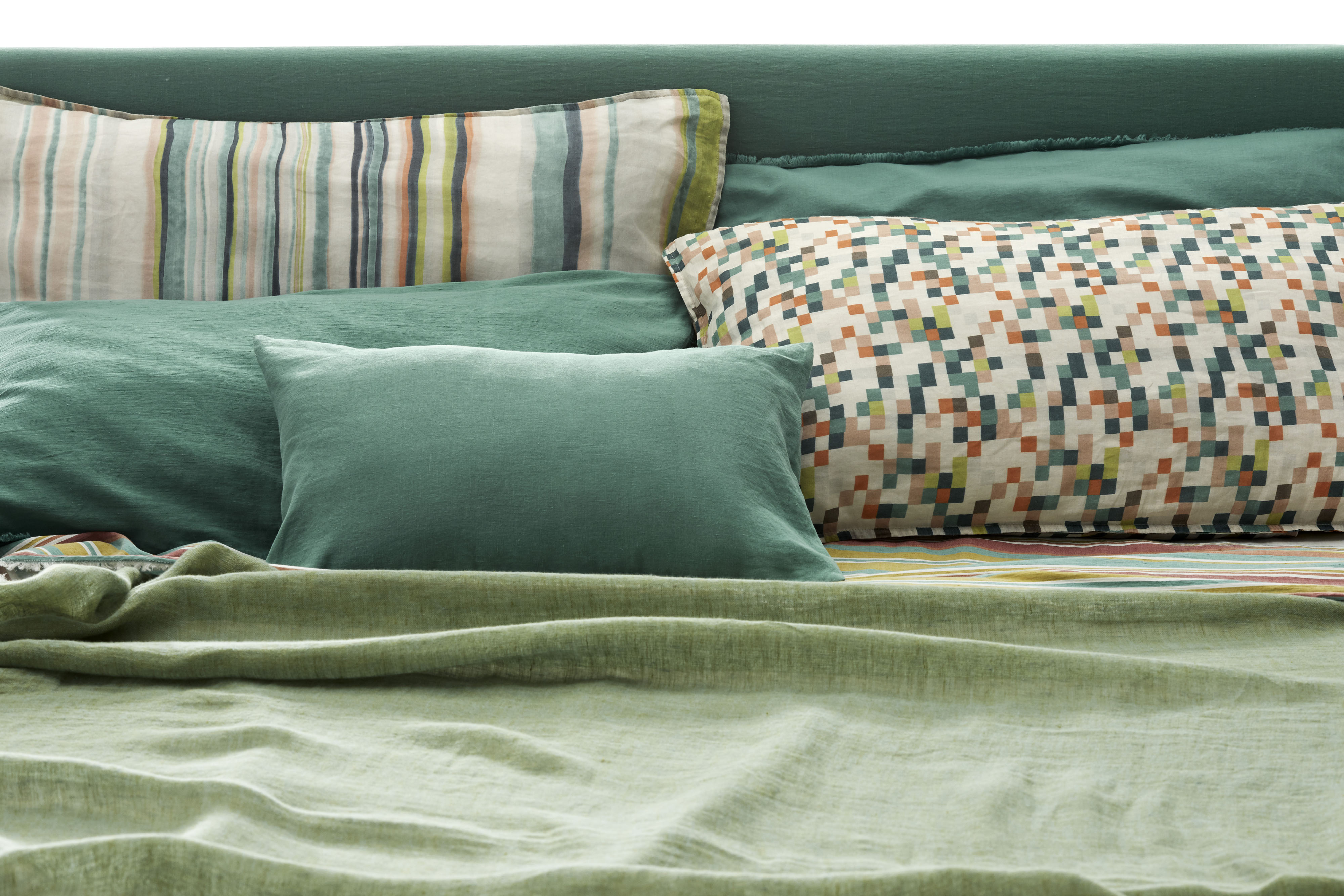How we seize any day is dependent not just on how well we slept but also on how we choose to start it. And right now, possibly more so than ever before, we need to ensure that we are ready for the clocks to go forward (read on to understand why), as well as doing our best to make mornings a delight not a dread.
But, are we all predetermined to be night owls or morning larks? Not at all. It’s purely habit. Habit perpetuated by myth and self-suggestion. In other words, we think we work best at night, so we allow our schedule to slip to accommodate that belief and use caffeine to override any misgivings. But human biological clocks are dictated, like those of many warm-blooded animals, by the passage of the sun. Our bodies naturally produce melatonin, the sleep hormone, in response to falling light levels. We all tend to slump a little in the afternoon and have a ‘second wind’ in the early evening. Sleep scientists believe this is linked to our evolutionary heritage, in that an energy peak as night falls would be necessary to protect primitive man from nocturnal predators, whereas a post-lunch snooze, out of the midday sun, works for animals as well as people. But contemporary life with its artificial light, manufactured stimulants and incessant distractions has us working against the innate cycles of our bodies, and indeed the natural world. Bear in mind too, that you don’t get skipped sleep back, which means we are all in effect staggering around burdened by a metaphorical backpack loaded with the weight of all our lost hours! And a stark example of the perils of this is what happens during daylight saving time (DST).
Every year, most parts of North America and Europe lose an hour in the spring and gain it back in the autumn. And every year, the incidence of traffic accidents, strokes and hospital admissions due to heart attacks increases in the spring and decreases correspondingly in the autumn. Why? Well, this time shifting, introduced in the early twentieth century to save energy and make better use of daylight, messes with our circadian rhythms and for people with an already weakened nervous system, whether due to illness or fatigue, such a disruption can be too much. And right now, with a viral threat hanging over our heads, and hospitals needing every bed they can muster, this is something we need to pro-actively avoid.
And yet it does not creep up on us by surprise. We always know the dates in advance (Sunday 29 March this year, yes, that’s this Sunday!), so here’s a suggestion: indulge in the autumn, and prep for the spring. And by prep, right now that means getting up ten minutes earlier, every day, from tomorrow until Sunday (if we had been really organsied, we could have done 5 mins every other day for a month beforehand, or any other permutation given more time!) But the point is, increasing your wake time slowly, instead of shocking your body with a sudden early start, is the best way to ease it in gently and ingrain it as a new habit. If you set your alarm back by much more, even 15 minutes, you may well be able to bounce out of bed fuelled by enthusiasm for the first few days, but inevitably even this small change in waking pattern will conspire to bring about a day when you cannot manage it. Once the pattern is broken, it very quickly becomes harder and harder to get back into the groove. So start tomorrow!
And when I say indulge in the autumn, I do not mean by staying in bed! Rather, could you consider the extra hour as a gift, and use it to do something meaningful? Could you wake at the same time as before, but now keep this precious hour for yourself ? Perhaps you’ve always wanted to start a blog? Or have the time to read more? Or even to take a morning bath; there’s something a bit delicious about doing this in the morning ; plus you can read in the bath, which is highly acceptable multi-relax-tasking. One thing is for sure, though, there’s no point getting up early if you end up pottering about doing nothing of any significance – be clear about what you wish to achieve in the new-found hour before you fall asleep (remember that notepad by the side of your bed?). Of course, the reality for many is that this extra hour presents an opportunity to try to offload some bricks from that lost-sleep backpack. Nice try, but it won’t help. Use it instead as a chance to establish a healthier ritual around sleep; the pointers below are a good place to start.
•
Forget the snooze button
Unless you have a whole 90-minute sleep cycle worth of time ahead of you, get
up when your body prompts you, no more than a few minutes after waking in the
morning. If you use an alarm clock, the temptation to hit the snooze button is
counterproductive as it will then go off mid-cycle or sooner, and you’ll be
horribly wrenched from sleep instead of naturally rousing yourself.
•
Rehydrate
All adults need a minimum of six standard glasses of fluoride- and
chlorine-free water a day to keep the body ticking over – it is integral to the
function of every organ. While some of this can be obtained from other
beverages or whole fruit, pure filtered water is the equivalent of five-star
fuel. Start as you mean to go on and get at least one down the hatch as soon as
you wake. Make it easy for yourself by leaving it on your bedside table before
you go to sleep.
•
Regularise medications
If you take supplements or other medication, they will always work better for
you if you take them at the same time every day, whether morning or night.
Unless they need to be taken with food, pop these down with that first glass of
water. Again, have it prepped by your bed the night before and you can do it
without thinking. Otherwise, have them ready for taking with your breakfast.
•
Jump-start the neurons
Open curtains and blinds as soon as you get up, especially if you have blackout
screening. A shot of daylight sends a ‘wake-up’ message to your brain and gives
your internal body clock a kickstart. In the winter, it can be helpful to
invest in an alarm that mimics the sunrise, rather than sounding a klaxon, as
darker mornings make bouncy starts that much harder. The second best way to
jump-start your brain? Have a shower, but turn it to cold for 20 seconds at the
end; it’ll wake you like nothing else. Otherwise, splash your face with cold
water. There’s no need for a whole face-cleansing routine (assuming you did
this before you went to bed), as you’ll strip your skin of its essential
barrier oils and make it more prone to infection. A light sweep with a gentle
toner after splashing will suffice if your skin feels oily.
•
Do a ten-minute meditation
You could do it just before you go to sleep too, but a morning session really
helps to instil a calm frame of mind. There are even some fantastic apps (I use
the Calm app, but others also recommend Headspace and InsightTimer) offering
guided meditations and relaxing body-scans for free, and some you can do lying
down, so you don’t even need to get out of bed (except to collect your phone,
which you can do after you’ve opened your curtains!).
•
Write in a gratitude journal
What reasons to be grateful do you already have today? What would make this day
especially great? It’s another small thing that sets you up with a positive
bias from the off. Be sure to make your expectations realistic, though – for
example, the intention for no arguments rather than the purchase of a winning
lottery ticket.
•
Prioritise breakfast
Never skip breakfast. It kick-starts your metabolism, gives you the energy to
start your day with vigour, and keeps you focused. Porridge in par- ticular is
a golden charm as it’s an excellent source of vitamins and minerals as well as
complex carbohydrates that release their energy slowly, thus less reaching for
sugary pick-me-ups come 11 a.m. Sprinkle a hand- ful of walnuts and some
sunflower seeds on top and this will boost the effect even more. Otherwise, add
a mixture of fruit to a blender, plus a banana, some frozen spinach (which
turns everything madly green and adds valuable nutrients without adversely
affecting taste), a spoonful of a superfood supplement like maca (a Peruvian
root that tastes slightly malty or nutty) and some milk of your choice, and you
can whizz yourself up a power breakfast in a glass.
•
Leave the phone alone
This is worth stressing: do not use the very first part of your day for anything
other than readying yourself. Don’t waste early-morning minutes mindlessly
checking your social media feeds or attempting to ‘get ahead’ on emails before
you even have breakfast. If you plough straight into external obligations, you
are sabotaging the rest of your day. Start as you mean to go on, with a plan
for consideration and calm, and the day will, if not follow accordingly, be
much more manageable for your having given yourself a self-supporting start.
•
Have a routine
Notwithstanding the reality of hectic mornings, trying to persuade/order
children into their clothes or downstairs in time to eat, it’s like they say on
an aeroplane: put your own oxygen mask on first. If you’re grouchy from too
little sleep or suffering from caffeine withdrawal, the odds are stacked
against you for a streamlined start. Beyond that, have a routine that everyone
buys into and decide together the family rules: for example, dressing before
breakfast, or afterwards? Then be consistent. And be your own best helper by determining
what can reasonably be done the night before – schoolbooks prepped; oats
pre-soaked. If you live alone, then a routine will provide an incredibly
sustaining framework of order. If you live with a partner, it’s helpful to
agree together how best to start your day, right down to who uses the bathroom
first and who makes breakfast. Such things are often the cause of petty
irritation or argument and yet it never occurs to us that such knowledge isn’t
transmitted by telepathy! Good communication is, after all, the foundation of
all good relationships.


